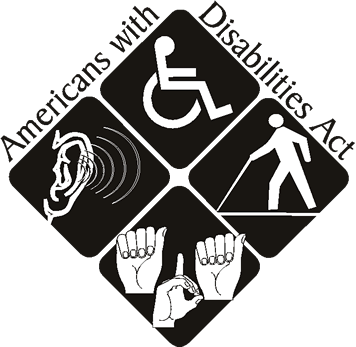New Orleans Whenever civil rights are expanded, it is a time for applause and attention, and yesterday in Congress by a near unanimous vote the rights of the disabled were significantly expanded. As always, this bill was a compromise, but for a change it was also a bit of corrective surgery, because the bill deliberately intended to expand coverage for differently advantaged Americans. Congress in fact stood up on two legs in an evolutionary adjustment and slapped back at the U. S. Supreme Court’s increasingly restrictive interpretation of the rights of the disabled.
Workers in fact should have an easier time in proving discrimination.
Two passages in the bill make the intent crystal clear:
* The bill explicitly scolds the Court in the language of the Act for “…eliminating protection for many individuals whom Congress intended to protect….”
* “The definition of disability in this act shall be construed in favor of broad coverage.”
Many of the remedies provided in this significant expansion of the Americans with Disabilities Act of 1990 are directed at the more “invisible” disabilities.
A specific example cited in the debates focuses on the deaf and hearing impaired community. Some courts have sided with many employers who discriminate against deaf workers by pretending that the utilization of a hearing aid or a cochlear implant device someone creates a false equity between the deaf man and woman and the hearing enabled man or woman in the work place. Employers were therefore let off the hook by the courts frequently in many necessary workplace “accommodations” and adjustments to recognize the needs and necessary compensations of the hearing impaired worker.
In New Orleans the office manager for Local 100 SEIU for many years (until the relocations of Katrina) was a severely hearing impaired woman who read lips and used various devices to deal with telephones and other communications tools. She did a brilliant job for us and her spirit alone lifted the office with constant good will and caring in a way that would have been unimaginable in other situations. We miss her still. In other areas of New Orleans ACORN’s work and the property management of the Elysian Fields buildings, we have been similarly benefited by the hard work of hearing impaired workers. This bill finally gives more and much needed protections in this area where to many believe if someone “looks” normal, then there are no responsibilities for accommodation.
Similarly coverage is likely to be expanded to allow people suffering with epilepsy, diabetes, cancer, and even learning disabilities to get accommodations and even justice where there is discrimination. This has not been the case previously. The bill is clear that “mitigating measures” like hearing aids, prescription drugs, prosthetics, and other aids do not create equity for the individual. In fact, “…impairment that is episodic or in remission is a disability if it would substantially limit a major life activity when active.”
The Times quoted Senator Tom Harkin of Iowa naming the problem well saying this bill eliminates the “Catch-22 situation” where the “more successful a person is at coping with a disability, the more likely it is the court will find that they are no longer disabled and therefore no longer covered by ADA.”
Finally a bill proves adamantly that false equity is still not equity at all in the workplace, and accommodations must be made.
A sign of light comes into the dark halls of Congress. Bush, the son, like Bush, the father, who signed the original ADA bill, says he will sign this new advance.
